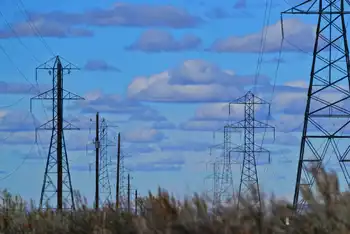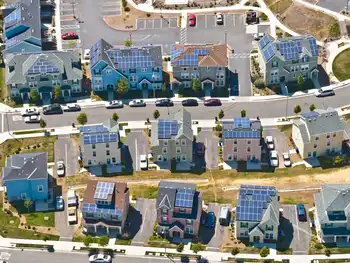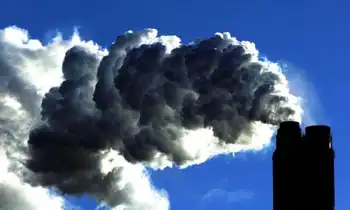Summer Power Grid Reliability and Climate Risk drives urgent planning as extreme heat, peak demand, drought, and aging infrastructure strain ERCOT, NERC regions, risking outages without renewables integration and climate-informed grid modeling.
Key Points
Assessment of how extreme weather and demand stress the US grid, informing climate-smart planning to reduce outages.
✅ Many operators rely on historical weather, not climate projections
✅ NERC flags elevated blackout risk amid extreme heat and drought
✅ Renewables and storage can boost capacity and cut emissions
As heat ramps up ahead of what forecasters say will be a hotter than normal summer, electricity experts and officials are warning that states may not have enough power to meet demand in the coming months. And many of the nation's grid operators are also not taking climate change into account in their planning, despite available grid resilience guidance that could inform upgrades, even as extreme weather becomes more frequent and more severe.
Power operators in the Central US, in their summer readiness report, have already predicted "insufficient firm resources to cover summer peak forecasts." That assessment accounted for historical weather and the latest NOAA outlook that projects for more extreme weather this summer.
But energy experts say that some power grid operators are not considering how the climate crisis is changing our weather — including more frequent extreme events — and that is a problem if the intent is to build a reliable power grid while accelerating investing in carbon-free electricity across markets.
"The reality is the electricity system is old and a lot of the infrastructure was built before we started thinking about climate change," said Romany Webb, a researcher at Columbia University's Sabin Center for Climate Change Law. "It's not designed to withstand the impacts of climate change."
Webb says many power grid operators use historical weather to make investment decisions, rather than the more dire climate projections, simply because they want to avoid the possibility of financial loss, even as climate-related credit risks for nuclear plants are being flagged, for investing in what might happen versus what has already happened. She said it's the wrong approach and it makes the grid vulnerable.
"We have seen a reluctance on the part of many utilities to factor climate change into their planning processes because they say the science around climate change is too uncertain," Webb said. "The reality is we know climate change is happening, we know the impact it has in terms of more severe heatwaves, hurricanes, drought, with recent hydropower constraints in British Columbia illustrating the risks, and we know that all of those things affect the electricity system so ignoring those impacts just makes the problems worse."
An early heatwave knocked six power plants offline in Texas earlier this month. Residents were asked to limit electricity use, keeping thermostats at 78 degrees or higher and, as extreme heat boosts electricity bills for consumers, avoid using large appliances at peak times. The Electric Reliability Council of Texas, or ERCOT, in its seasonal reliability report, said the state's power grid is prepared for the summer and has "sufficient" power for "normal" summer conditions, based on average weather from 2006 to 2020.
But NOAA's recently released summer outlook forecasts above average temperatures for every county in the nation.
"We are continuing to design and site facilities based on historical weather patterns that we know in the age of climate change are not a good proxy for future conditions," Webb said.
When asked if the agency is creating a blind spot for itself by not accounting for extreme weather predictions, an ERCOT spokesperson said the report "uses a scenario approach to illustrate a range of resource adequacy outcomes based on extreme system conditions, including some extreme weather scenarios."
The North American Electric Reliability Corporation, or NERC — a regulating authority that oversees the health of the nation's electrical infrastructure — has a less optimistic projection.
In a recent seasonal reliability report, NERC placed Texas at "elevated risk" for blackouts this summer. It also reported that while much of the nation will have adequate electricity this summer, several markets are at risk of energy emergencies.
California grid operators, who recently avoided widespread rolling blackouts as heat strained the grid, in its summer reliability report also based its readiness analysis on "the most recent 20 years of historical weather data." The report also notes the assessment "does not fully reflect more extreme climate induced load and supply uncertainties."
Compounding the US power grid's supply and demand problem is drought: NERC says there's been a 2% loss of reliable hydropower from the nation's power-producing dams. Add to that the rapid retirement of many coal power plants — all while nearly everything from toothbrushes to cars are now electrified. Energy experts say adding more renewables into the mix will have the dual impact of cutting climate change inducing greenhouse gas emissions but also increasing the nation's power supply, aligning with efforts such as California's 100% carbon-free mandate that aim to speed the transition.
Related News












